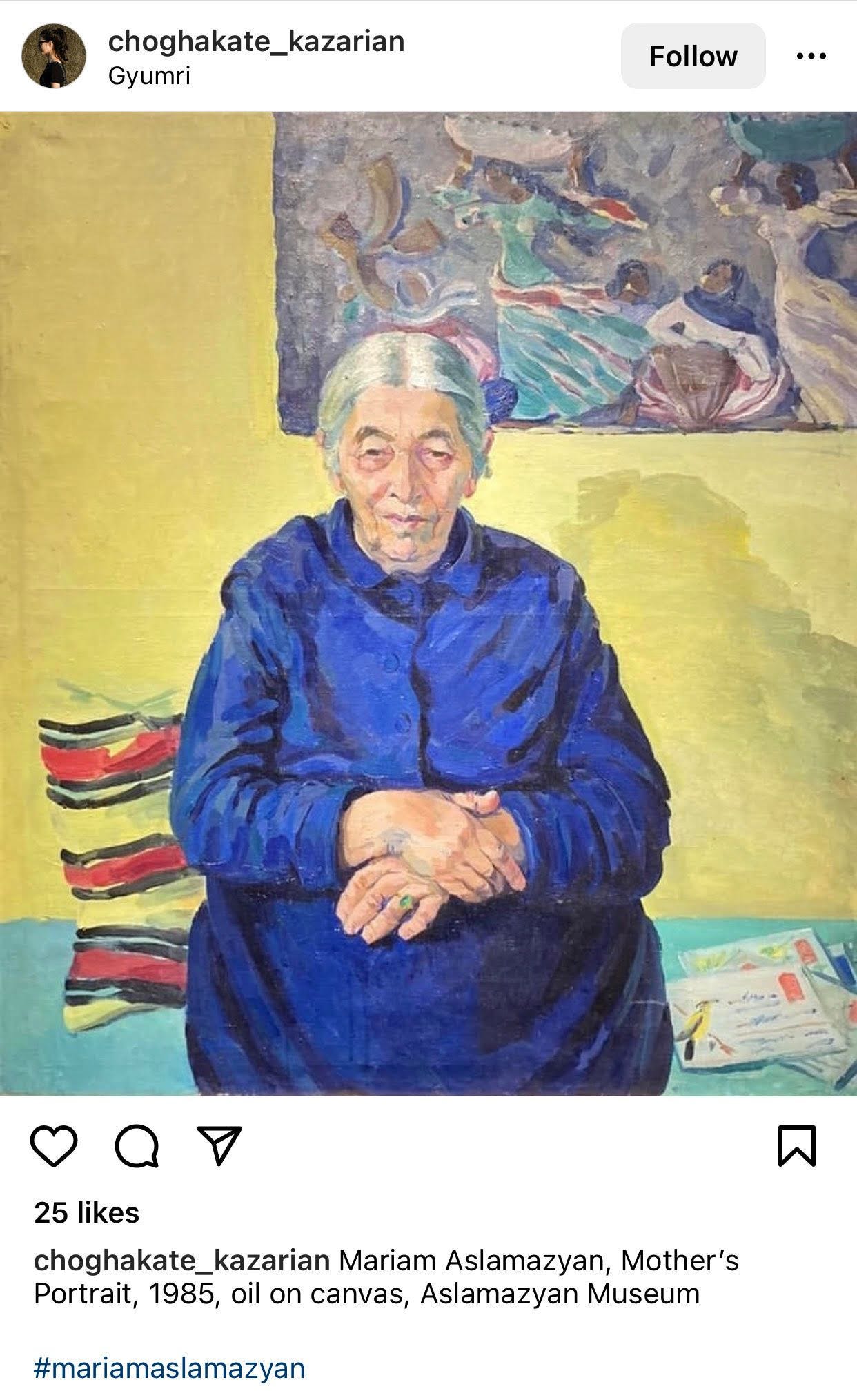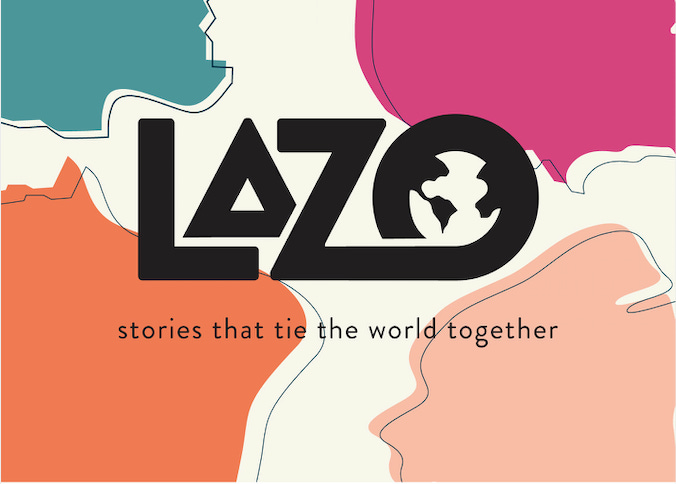#8 Armenia
Welcome to the 195 series, where I take you on a mini-tour of every country (and maybe some places that want to be countries). Each week I'll feature a new location. Some you may have heard of, while others may be new to you. The point is to learn and nurture our curiosity about the wider world. Maybe you'll find a new artist or musician you like, too.
Here's the link to copy and paste in your browser if you're interested in supporting this project: https://lazo-letters.ghost.io/#/portal/signup. You can sign up for $2 a month or $22 a year. Seriously, buy me a cup of coffee. Show me love with your $$$.
Country Info:
I'm excited to share a little bit about Armenia this week. I visited the country frequently when I lived in nearby Georgia, and I had some memorable excursions hitchhiking from Tbilisi to Yerevan and back.
Once my travel companion and I got lost and ended up in a tiny village where the only person who could give us a ride was a man on a tractor. We rode with him and a chicken for several miles and eventually made it to Ninotsminda, on the Georgian side of the border.
On another occasion, a man in an ice cream truck picked us up. There were three of us traveling at the time. We sat on each other's laps, all squished into the passenger seat, eating ice cream on the road back to Georgia. Once a Turkish truck driver let me drive his lorry across the border. I always had fun in Armenia.
Armenia has stunning landscapes with craggy white mountaintops. It has ancient monasteries and complex, contentious relations with almost all of its neighbors, a combination that makes it visually pleasing but also interesting to learn about if you're intrigued by the history of nationalism that arose following the fall of the Soviet Union or the connections between religion and identity.
It also has a vibrant civil society and activist community. If you want to know more about the country, I recommend reading Thomas de Waal's book Black Garden, about Armenia's conflicts with its neighbor Azerbaijan. Or, if you can read in Spanish, journalist Virginia Mendoza's book Wounds of the Wind: Armenian Chronicle is worth your time.
Population: Roughly 2.96 million.
Current government: Armenia is a parliamentary democracy in which the President is the head of state, and the Prime Minister is the head of the government. The current Prime Minister is Nikol Pashinyan, a former journalist who came to power in 2018 on the back of widespread protests.
Languages spoken: Armenia is the only official language. But a lot of people speak Russian, too. The Armenian alphabet was allegedly created in 405 AD by the cleric Mesrop Mashtots, who modeled some of the letters off the Greek alphabet.
Religion: Armenians say their country was the first to adopt Christianity. And they might be right. Most Armenians are members of the Armenian Apostolic Church, one of the oldest Christian churches in the world. It was founded in the 1st century AD.
Standout artist: Mariam Aslamazyan, 1907-2006. Born in the city now known as Gyumri, she has been dubbed the "Armenian Frida Kahlo."

Standout film: The Color of Pomegranates. The 1969 film by Soviet-era director Sergei Parajanov is a biopic of Armenian poet Sayat Nova. The movie was controversial during the Soviet period for its nationalist imagery. Parajanov was known for incorporating Georgian, Ukrainian, and Armenian folk art into much of his work.
Parajanov is an interesting character apart from his films. He was widely suspected of being bisexual when Soviet authorities prohibited homosexual relations, and he was arrested and jailed in 1973. I highly recommend visiting the Parajanov museum if you ever happen to be in Yerevan.
You can watch the movie here. But I'm told this is an abridged version, and you can watch the entire film if you have a Criterion account.
OK, you're getting two movie recommendations from me this week. Vodka Lemon is a 2003 dramedy about a Yazidi Kurdish village in post-Soviet Armenia. It is delightful and on YouTube, but this version is dubbed in Italian with English subtitles. I recommend seeking out the version in the original languages.
A surprising thing: In 2011, Armenia made chess mandatory as part of all school curriculums.
Story of the week: Russia called for restraint after Armenia and Azerbaijan accused each other of violating a Moscow-brokered ceasefire following deadly clashes in the disputed Nagorno-Karabakh region over the last few days. CNN has the story.
If you want to read more about the conflict over Nagorno Karabakh, you can read my article for VICE about the last outbreak of violence. I also interviewed one of the people running Nagorno Karabakh for this newsletter.
What I'm writing:
• Months after Congress passed an appropriations bill for Ukraine, talks are starting around a new round of funding. But Republicans first want a fuller accounting of the initial $40 billion. And language in the last bill caused some disagreements.
This is a wonky story about a fight over how the Biden administration is interpreting language in the $40b supplemental appropriations bill Congress passed for Ukraine in May.
But these types of arguments could have a big impact on future Congressional support for Ukraine. https://t.co/GtZ5c0tuhd— Cristina Maza (@CrisLeeMaza) August 3, 2022
• African diversity visa winners are suing the Biden administration for failing to schedule visa interviews in time for the September deadline. Government lawyers say Congress hasn’t required the State Department to issue all available visas.
What I'm reading:
• Ukrainian President Volodymyr Zelenskyy announced a mandatory evacuation from the Donetsk region. In a nightly address, Zelenskyy called on the remaining residents to leave the region urgently in what he called a "government decision," CNN reports.
• Amnesty International and the European Union joined Kyiv in calling for an investigation into footage that appears to show pro-Russian forces castrating and executing a captive Ukrainian fighter, the Washington Post reports.
• Russian President Vladimir Putin signed a new naval doctrine, casting the U.S. as Moscow's main rival and setting out Russia's global maritime ambitions, the Hill reports.
• A new satellite that Russia is preparing to launch on Iran’s behalf next week will be used to assist its own war effort in Ukraine, the Washington Post reports. The satellite will give Tehran unprecedented capabilities to spy on military targets across the Middle East.
• A New York man was arrested near the home of Iranian journalist and dissident Masih Alinejad, who was previously the target of an alleged kidnapping plot by the Iranian government, the Wall Street Journal reports.
These are the scary scenes capturing a man who tried to enter my house in New York with a loaded gun to kill me.
Last year the FBI stopped the Islamic Republic from kidnapping me.
My crime is giving voice to voiceless people. The US administration must be tough on terror. pic.twitter.com/XsxlFLSlOk— Masih Alinejad 🏳️ (@AlinejadMasih) July 31, 2022
• The U.S. Justice Department charged Russian citizen Aleksandr Viktorovich with conspiring to have American citizens act as illegal agents of the Russian government. Ionov, 32, who lives in Moscow and is not in custody, is accused of recruiting three political groups in Florida, Georgia, and California from December 2014 through 2022, providing them with financial support and directing them to publish Russian propaganda, the New York Times reports.
• The U.S. Treasury Department sanctioned Russian President Vladimir Putin's reputed girlfriend as part of a series of measures designed to punish the Kremlin for its ongoing war in Ukraine, CNN reports.
• Bulgaria's authorities are investigating an explosion at an ammunition depot owned by an arms dealer who is allegedly a middleman for munitions exports to Ukraine, the Wall Street Journal reports. The complex is owned by Emilian Gebrev, who survived a near-fatal 2015 poisoning, for which Bulgarian prosecutors later charged three Russian citizens.
• Bulgarian President Rumen Radev called a snap election for October 2. It will be the fourth parliamentary vote in two years, Politico Europe reports.
• A dispute over license plates between Kosovo and Serbia sparked protests and gunfire. The demonstrations come on the eve of a new law requiring ethnic Serbs living in Kosovo to switch from Serbian license plates to Kosovar ones in the next two months. Kosovo’s government also said that all Serbian ID and passport holders must obtain an additional document to enter Kosovo, Valerie Hopkins reports for the New York Times.
• Following the unrest, Kosovo's government postponed the implementation of new rules that would force people in majority ethnic Serb areas to swap their Serbian-issued car number plates for Kosovan-issued ones, the BBC reports.
NOW: @SenatorShaheen and @SenatorWicker introduced a new bill to support economic development, promote democratic resilience, and combat corruption in the Balkans.
Senators Durbin, Van Hollen, Cardin, and Murphy are the original co-sponsors. https://t.co/RXtFDihtQs— Cristina Maza (@CrisLeeMaza) August 4, 2022
• Officers from Hungary's National Tax and Customs Authority raided the headquarters of the Hungarian Evangelical Fellowship, a small independent Methodist denomination whose leader has been critical of Prime Minister Viktor Orbán, the Church Times reports.
• Hungarian Prime Minister Viktor Orbán took the stage at the Conservative Political Action Conference (CPAC) in Texas. Politico reports that Orbán railed against immigration, globalism, and gender fluidity and claimed an ideological battle for Western civilization would be fought in Washington and Brussels.
• The JournalismFund.EU has an investigation into the exploitation of Vietnamese workers at a factory owned by the Czech Republic's former Prime Minister Andrej Babiš.
• In Italy, right-wing anti-immigration parties stand to win the most support in upcoming elections and form the next government. At the head of them all is Giorgia Meloni, leader of the hard-right Brothers of Italy, Politico Europe reports.
• Secretary of State Antony Blinken backed a European Union proposal to salvage the Iran nuclear deal, CNN reports.
• The man who killed Japan's former Prime Minster Shinzo Abe said he committed the crime because of the former prime minister’s links to the Unification church, also known as the Moonies, which he blamed for bankrupting his family, the Guardian reported. "Three weeks on from Abe’s death, details have emerged showing that the church’s ties to politicians extend well beyond Japan’s longest-serving prime minister, angering voters and raising questions about its influence on the ruling Liberal Democratic party’s policies on gender equality and sexual diversity," the story reads.
• China fired multiple missiles around Taiwan and launched unprecedented military drills a day after a visit to the self-ruled island by House Speaker Nancy Pelosi, Reuters reports.
• China announced it is halting cooperation with the U.S. in several areas, including dialogue between senior-level military commanders and climate talks, Reuters reports.
• Russian Foreign Minister Sergei Lavrov visited Myanmar for talks as the country’s military junta comes under increased pressure from the U.S. over the execution of democracy activists, the Wall Street Journal reports.
• Israel unleashed a wave of airstrikes in Gaza on Friday, killing at least 10 people, including a senior militant, and wounding dozens, the Associated Press reports.
• The landmark truce between the Yemeni government and Houthi rebels, which has been holding since April, has been renewed for another two months, according to the United Nations.
• The influential Iraqi cleric Moqtada al-Sadr called for a change in Iraq’s constitution and election procedures after his supporters occupied the parliament building, the Wall Street Journal reports.
• The Democratic Republic of Congo asked the spokesperson of the United Nations peacekeeping mission, MONUSCO, to leave the country, and blamed him for stoking tensions that led to deadly protests last week, Reuters reports.
• The Biden administration is set to unveil a new strategy on Africa aimed at reviving U.S. engagement across the continent, Robbie Grammar reports for Foreign Policy.
What the State Department says:
You can write to me for any reason at c.maza@protonmail.com.








